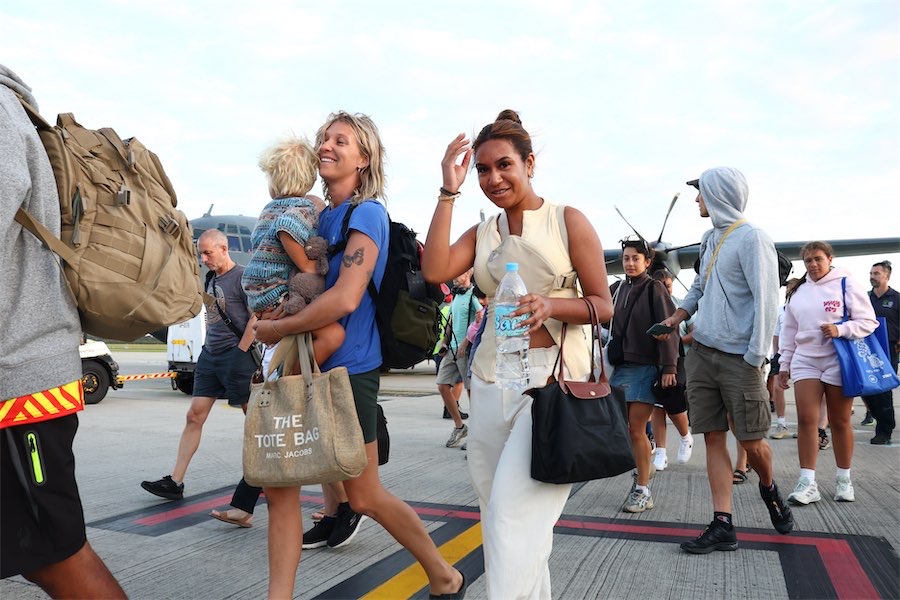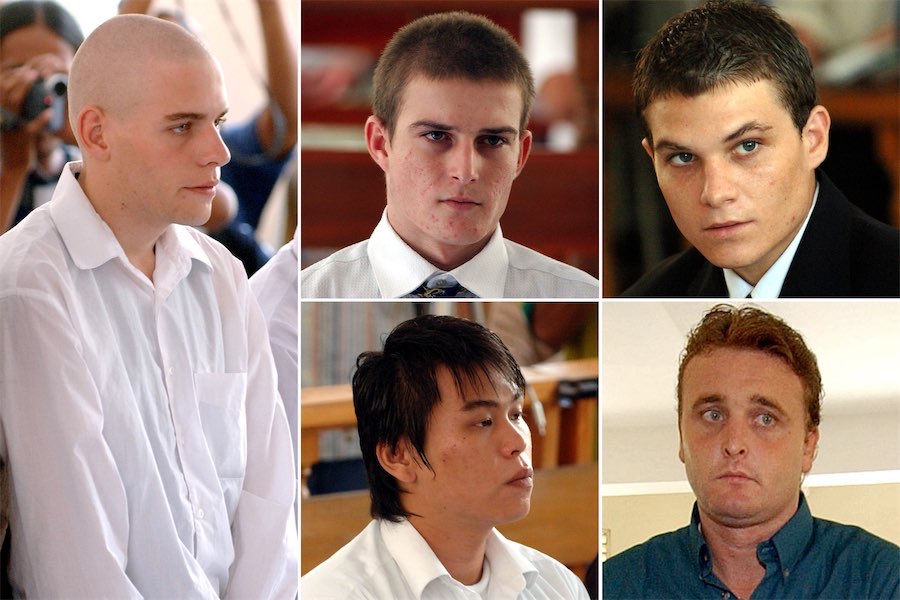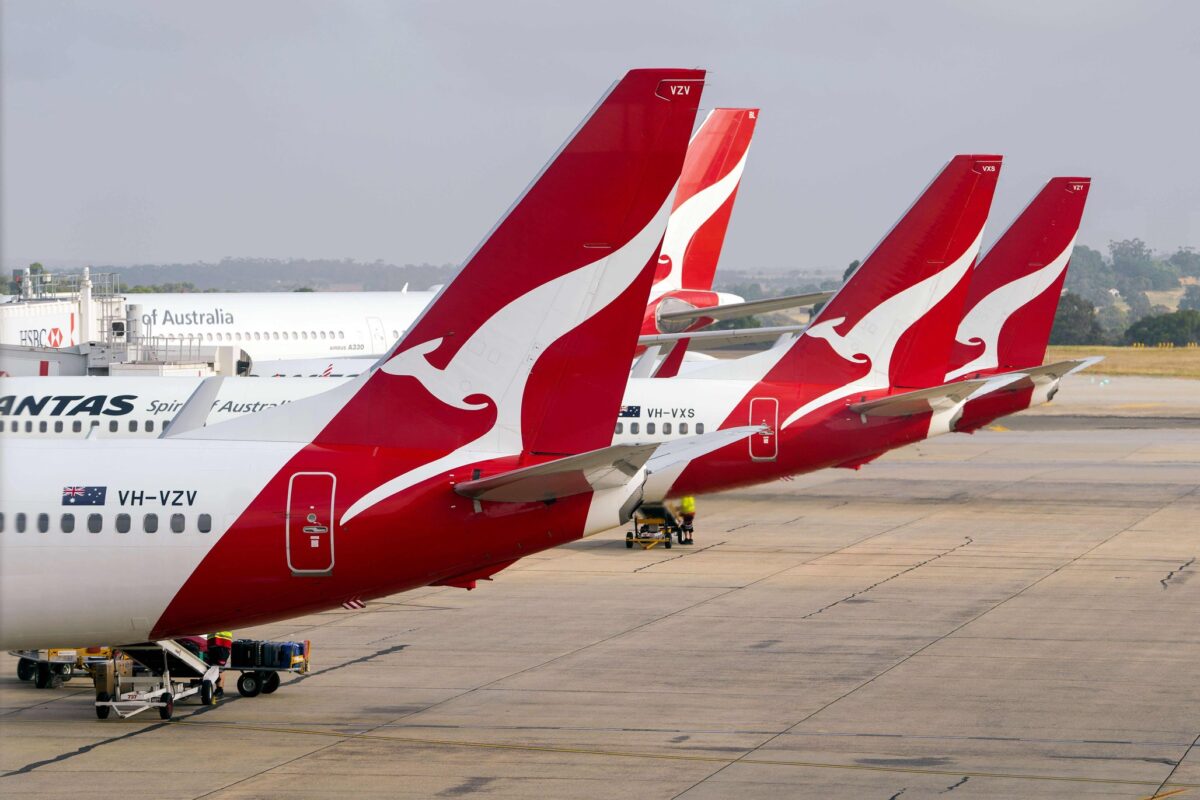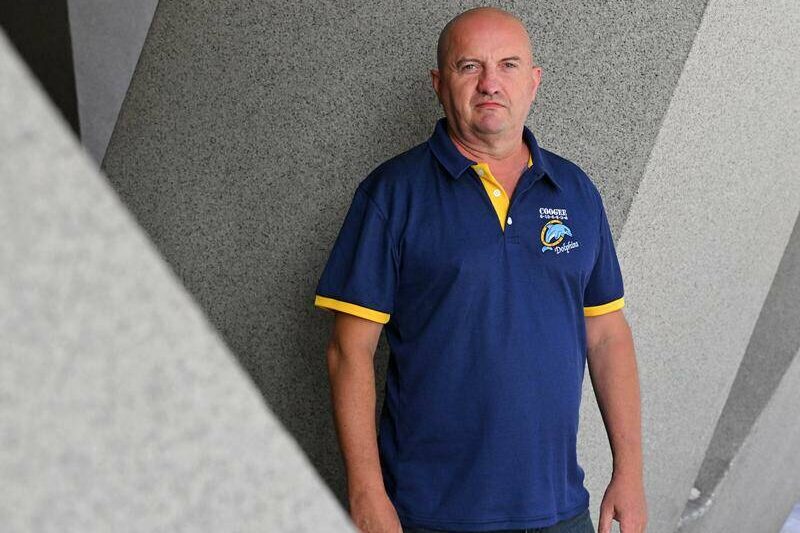
By Emily Verdouw in Brisbane
With a fist pump and tears of relief, Chantel Mara was visibly emotional as she stepped onto the tarmac at Brisbane International Airport, finally home after witnessing the devastation caused by the Vanuatu earthquake.
“It feels so good to be home,” she told AAP.
“We’re home. We’re safe.”
Ms Mara was among the 136 Australians who returned on two RAAF planes on Thursday evening, sharing emotional stories of chaos, survival and relief following the magnitude 7.3 quake on Tuesday that devastated the capital Port Vila, leaving up to 14 feared dead and at least 200 injured.
Their arrival came after the Australian government repatriated 148 citizens on Wednesday.
It is the worst quake to hit the Pacific island nation in more than a century, leaving widespread destruction and triggering landslides and tsunami warnings.
Ms Mara, who was travelling with her husband and three kids, described the chaos at her hotel when the quake struck.
“We were in a shop when it happened, it threw my son and hubby on the road,” she said.
“There’s a lot of people still under rubble that has collapsed… it’s very bad.”
Mrs Mara recalled the terrifying aftershocks.
“The last two mornings we woke up at 10 to five, and 20 past five to another earthquake happening… we all jumped out of bed and ran,” she said.
Also arriving was Shane Cook, who was in Port Vila when the earthquake struck.
“I watched buildings come down around me, and I watched people… I saw someone get crushed. It was horrific,” he told AAP.
“Everyone started yelling ‘Tsunami!’ so we had to run up a giant hill.”
Mr Cook described waiting for hours in uncertainty.
“We literally sat on the top of the hill for about five-and-a-half hours until someone came to us and gave us some information to go to the Australian High Commission.”
Emeren Chiana was on a family holiday, due to celebrate her cousin’s wedding on Saturday.
She was at Vanuatu’s famed Blue Lagoon when the quake hit.
“Two of my cousins were actually on a tree trying to jump off into the lagoon and I had a cousin actually in the lagoon … were were worried about all the little kids … the Blue Lagoon tuned brown in like, probably five seconds.”
With roads blocked by landslides, Ms Chiana struggled to return to her hotel, only to find homes near her grandmother’s house under water.
“I still have family that is stuck over there,” an emotional Ms Chiana said.
“My grandma, my aunt and other cousins are there… their homes were under water.”
“I was the last person allowed on that flight.”
Brooke Taylor was preparing for a zip-line tour when the ground began to shake.
“Everything collapsed on us, the Christmas trees, the water fountains all fell,” she recalled.
“We lost power probably at five o’clock that afternoon, so I couldn’t get in contact with any of my family and I was alone.”
“We had no water, so we couldn’t shower, couldn’t use toilets… we were using pool water to try to flush the toilets.”
Ms Taylor also described the fear she felt waking up in her hotel to further earthquakes the next morning.
“Being up high, every was so loud… we packed a little bag in case we had to get out quick, that’s why we have no luggage at the moment.”
Authorities have since issued a low-to-medium risk of a cyclone and rain the could cause landslides, adding further urgency to recovery efforts.
The federal government has sent search-and-rescue teams to boost the disaster recovery effort in Vanuatu.
Who can be trusted?
In a world of spin and confusion, there’s never been a more important time to support independent journalism in Canberra.
If you trust our work online and want to enforce the power of independent voices, I invite you to make a small contribution.
Every dollar of support is invested back into our journalism to help keep citynews.com.au strong and free.
Thank you,
Ian Meikle, editor





Leave a Reply